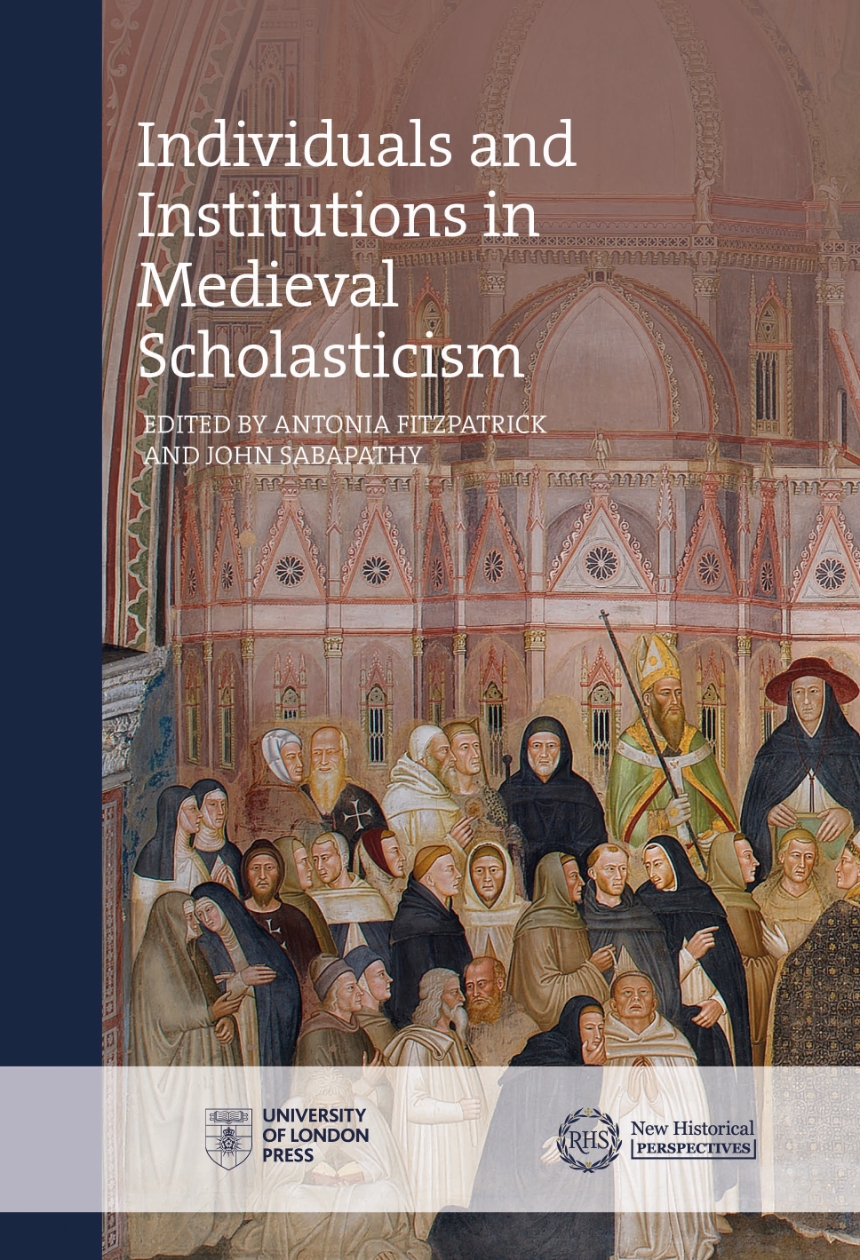Individuals and Institutions in Medieval Scholasticism
9781912702275
9781912702268
Distributed for University of London Press
Individuals and Institutions in Medieval Scholasticism
Individuals and Institutions in Medieval Scholasticism is one of the first pieces of close exploratory scholarship on the fundamental relationship between medieval scholastic thought, individual scholars, and their institutions. The text revolves around these essential questions: What was the relationship between particular intellectuals and their wider networks (including but not limited to “schools”), how did intellectuals shape their institutions, and how were their institutions shaped by them? This theoretically sophisticated collection uses a range of European methodological approaches to address a variety of genres such as commentaries, quodlibetal questions, polemics, epic poetry, and inquisition records, and a range of subject matter including history, practical ethics, medicine, theology, philosophy, the constitution of religious orders, the practice of confession, and the institution of cults. This book will be an important reference point for medieval historians, while also raising questions relevant to those working on individualization and institutionalization in other periods and disciplines.
300 pages | 6.4375 x 9.625 | © 2020
Anthropology: Cultural and Social Anthropology
History: General History
Table of Contents
Introduction: Antonia Fitzpatrick and John Sabapathy (Oxford and University
College London): Individuals and Institutions in Medieval Scholasticism
Part I. Individuals and intellectual traditions: construction and
criticism
1) Antonia Fitzpatrick (Oxford): The
Correctoria Corruptorii Fratris Thomae of Richard Knapwell, Robert of Orford,
and John Quidort
2) Blaise Dufal (Écoles des Hautes
Études en Sciences Sociales): Ambiguous authorities: St. Augustine and
scholastic identities
3) John Marenbon
(Cambridge): Pomponazzi
4) Matthew Kempshall
(Oxford): Individuals and the institution of history
Part II. Institutions and individuals: organizations and social
practices i. Individuals and organizations
1) Gert Melville (Dresden): The
charismatic and religious communities: some observations about an apparent
contradiction between individual and institution
2) Sylvain Piron (Écoles des Hautes
Études en Sciences Sociales): How much indeterminacy can an institution bear?
The case of the Franciscan vow
3) Peter Biller (York):
Rolando of Cremona and Inquisition
ii. Individuals and practices
4) John Sabapathy (University College
London): Robert of Courson and the ‘social systems’ of early thirteenth-century
institutions
5) Emily Corran (Oxford and University
of Kent): “Better to Let Scandal Arise than to Relinquish the Truth”: The cases
of conscience of the Masters of Paris in the thirteenth century
6) Cornelia Linde (Martin Luther
Universität, Halle-Wittenberg): The Friar Within. Robert Holcot’s Super
Quattuor Libros Sententiarum Questiones
7) Isabel Iribarren (Strasbourg): The
cult of the marriage of Joseph and Mary: The shaping of doctrinal novelty in
Jean Gerson’s Josephina (1414-1418)
Conclusions: David d’Avray (University College London)
College London): Individuals and Institutions in Medieval Scholasticism
Part I. Individuals and intellectual traditions: construction and
criticism
1) Antonia Fitzpatrick (Oxford): The
Correctoria Corruptorii Fratris Thomae of Richard Knapwell, Robert of Orford,
and John Quidort
2) Blaise Dufal (Écoles des Hautes
Études en Sciences Sociales): Ambiguous authorities: St. Augustine and
scholastic identities
3) John Marenbon
(Cambridge): Pomponazzi
4) Matthew Kempshall
(Oxford): Individuals and the institution of history
Part II. Institutions and individuals: organizations and social
practices i. Individuals and organizations
1) Gert Melville (Dresden): The
charismatic and religious communities: some observations about an apparent
contradiction between individual and institution
2) Sylvain Piron (Écoles des Hautes
Études en Sciences Sociales): How much indeterminacy can an institution bear?
The case of the Franciscan vow
3) Peter Biller (York):
Rolando of Cremona and Inquisition
ii. Individuals and practices
4) John Sabapathy (University College
London): Robert of Courson and the ‘social systems’ of early thirteenth-century
institutions
5) Emily Corran (Oxford and University
of Kent): “Better to Let Scandal Arise than to Relinquish the Truth”: The cases
of conscience of the Masters of Paris in the thirteenth century
6) Cornelia Linde (Martin Luther
Universität, Halle-Wittenberg): The Friar Within. Robert Holcot’s Super
Quattuor Libros Sententiarum Questiones
7) Isabel Iribarren (Strasbourg): The
cult of the marriage of Joseph and Mary: The shaping of doctrinal novelty in
Jean Gerson’s Josephina (1414-1418)
Conclusions: David d’Avray (University College London)

